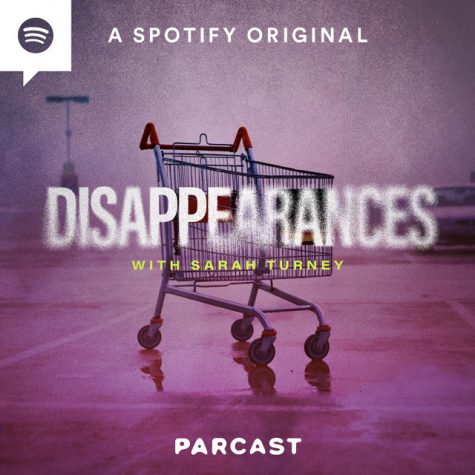Obama and Springsteen discuss American life, politics, and society in their podcast: “Renegades: Born in the USA”
Bruce Springsteen (left) and former President Barack Obama (right) join to launch an eight-episode podcast series. (Courtesy of Facebook)
On Feb. 22, former President Barack Obama and celebrated singer-songwriter Bruce Springsteen launched their podcast “Renegades: Born in the USA.” The podcast is produced by Higher Ground, a production company founded in 2018 by Barack and Michelle Obama. In this high-profile, eight-episode series, Obama and Springsteen lead discussions ranging from their personal life experiences to politics and American life. The title lends itself to a sense of American nostalgia; Obama’s Secret Service name was “Renegade,” and “Born in the USA” is Springsteen’s most commercially successful album. The tone of the podcast is conversational and familiar; the two obviously share a strong friendship and comfortability with each other that creates a warm and open atmosphere.
The two men might appear polar opposites at first glance, but “Renegades” displays a deeper kinship that listeners may appreciate for its honesty and intimacy. They met on Obama’s campaign trail in 2008. Both share stories from their childhoods and careers, incorporating music and sound effects that reflect the ties that each maintain to American culture and society. Discussion topics include race, class and masculinity in this country, as well as their outlook on life and often more philosophical viewpoints.
The conversation flows like a fireside chat; Obama and Springsteen converse with natural ease. They critique American society while also maintaining an appreciation and level of nostalgia for something like Jack Kerouac’s rough-hewn, nomadic America: a toughened, Westernized culture rooted in exploration and hard-earned morality. They also discuss the ways their lives have been shaped by familial commitments later in life and the experiences they have had that left them feeling alienated from societal expectations and constraints.
However, while the imagery that they cultivate of this hopeful, hardworking version of the American dream may seem romantic, I think it becomes idealistic beyond its reality. “Renegades” maintains a casual, conversational structure, but the tone may somewhat miss the mark at times. The two agree on almost every point that they discuss, which leaves little room for critique of their many shared opinions. The relaxed, winding chats are interesting to listen to, but they both express an optimistic Democratic perspective that might fall short of reaching political and societal unity that they urge citizens to achieve. Obama and Springsteen are excellent conversationalists and wordsmiths; obviously, both have been lauded for their speaking and writing abilities throughout their careers. However, at times their discussions do not directly acknowledge the issues or failures of their idealistically centrist approach to political discourse.
For instance, although in the second episode Springsteen criticizes the bailouts of big bankers on Wall Street while average American citizens faced the financial crisis of 2008, there is no mention of the fact that the Obama administration never prosecuted any senior Wall Street bankers for fraud following the crisis. If the goal of the podcast was to have difficult conversations, the hosts manage to slide neatly past some of the more challenging subjects that could have been addressed concerning the intersections of racism and classism in American society. Given the fact that Obama and Springsteen are such good friends, it makes sense that they never approach any type of potential confrontation or disagreement. Listeners might appreciate the sense of nostalgia that they establish, but the lack of challenge or critique seems somewhat pointless after a while given that they both express a desire to examine American culture and society through a critical lens.
Listening to “Renegades,” you might enjoy Obama and Springsteen’s anecdotal reflections and philosophical ramblings. The podcast is well-produced, interspersed with snippets of folksy rock music and other tidbits, even incorporating some of Springsteen’s singing as he strums his guitar. However, the idealism of the two men might be less relatable to their audience than either might have thought. Barack Obama and Bruce Springsteen have both become emblematic of American culture and society over the years for multiple reasons; they often seek a sense of unity and optimism for the future that has been difficult to maintain or even conceive of for many citizens following the election of Trump. This hope is not necessarily a futile one, but it seems misplaced to hold conversations about American society without further, deeper criticism about the actions of our political leaders, including the Obama, Trump and Biden administrations. Overall, “Renegades: Born in the USA” reaches a sense of nostalgia and optimism that is enjoyable to listen to but sometimes misses relevant political points.












































































































































































































